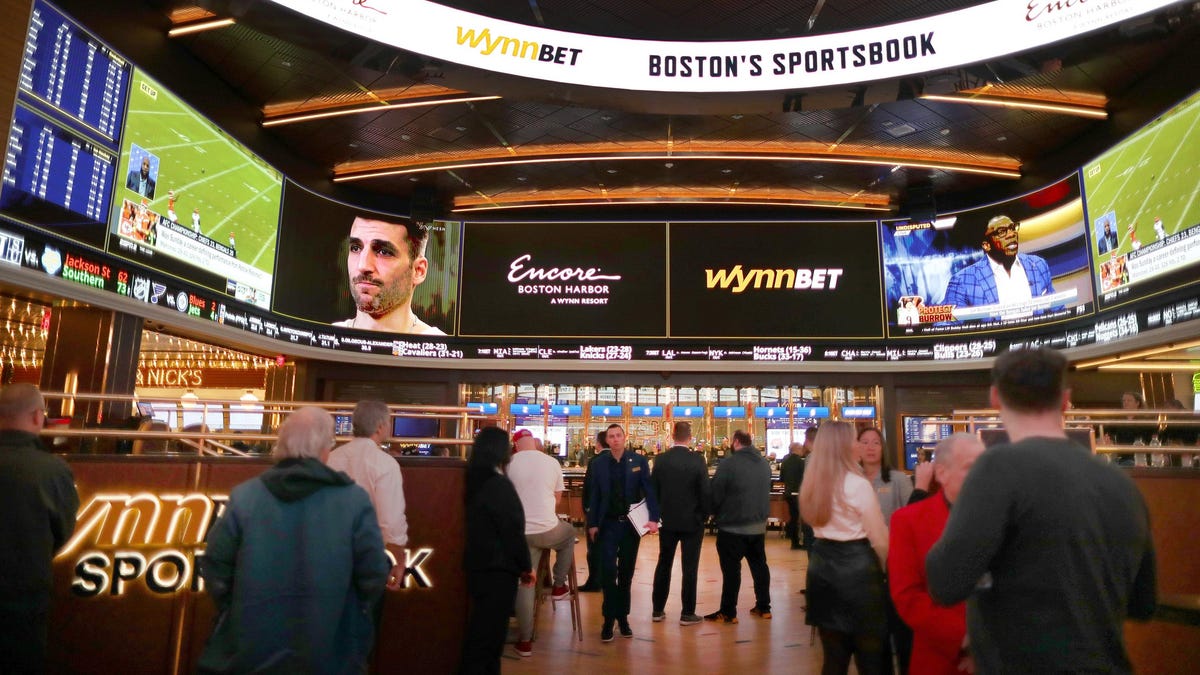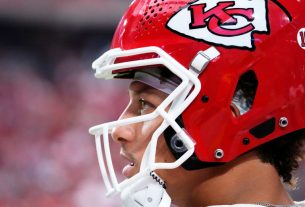While the Super Bowl matchup this time is one of the more fascinating in recent history — two Black starting QBs (Jalen Hurts and Patrick Mahomes), the Kansas City Chiefs attempting to cement their modern dynasty, what Philadelphia Eagles fans will eat and climb on this time — we know that the ads shown during the game will get nearly as much coverage. It can be a good distraction, and there are enough people who tune in for the ads themselves ahead of the game that it merits that sort of attention.
You won’t be able to escape gambling this time around either. The American Gaming Association says that a record record-breaking 50 million bettors are expected to wager $16 billion on Super Bowl LVII. Ever since the legalization of sports betting started sweeping most of the nation (not you, California, just have to be so different don’t you?), gambling ads have sat on every sports broadcast like a bloated hippo. It can be Joakim Noah grinning goofily at us or Paige Spirinac showing us she can’t really dance or Kevin Hart yelling at us (kind of his thing). They’re everywhere and have become such a part of the fabric one can wonder if they haven’t taken over the whole scenery.
Molson-Coors and DraftKings team up for Super Bowl ad
It probably won’t be too different this Sunday, especially as one gambling company has now partnered with a beer company to make a Rat King of a Super Bowl ad campaign. Molson-Coors and DraftKings have formed an unholy alliance this month that will allow fans to actually bet on how the beer’s company ad will end. It’s called “The High Stakes Beer Ad.” If this sounds a little too dystopian, it probably is, but also keep in mind that Vegas has taken bets on soap operas and wrestling for a long time now.
After the game, you can be sure that there will be a heavy collection of writers nearly choking themselves out clutching their pearls over the evils of sports gambling and sports gambling ads on every broadcast. Like this. Or this. Or maybe this. And there is something unseemly about how ever-present gambling is now around our sports. Or how easy it is to dive in, as these days you don’t need pants or to even stand up off your couch. You can lose hundreds of dollars in less than a minute without only lifting your phone to your face (do try to burn some calories when emptying your bank account, people).
Perhaps it was just the sudden gear change. We went from being only able to bet on sports in Vegas or with calls to “our guy” or amongst friends to seeing a gambling ad on TV every commercial break in an instant. It didn’t ramp up, it landed on us like the Monty Python foot. It was a new world in an instant, and we’re still trying to figure out where we are.
G/O Media may get a commission

30% off
The Anthem All-Terrain Stroller Wagon Adventure Bundle
Go everywhere with your kids
This must-have bundle nets you either of Gladly’s award-winning Anthem2 or Anthem4 All-Terrain Stroller Wagons as well as must-have accessories like a parent cupholder, a removable storage basket, extra-large canopies, a nap system, quilted comfort seats, a cooler bag with a padded shoulder strap, and a travel bag.
It’s not new, just only recently legal in the U.S.
Of course, the U.S. was only really catching up to a lot of the other parts of the world when it came to sports gambling being part of the scene. Betting had been a huge part of the UK and European sporting culture for a while. Throw a rock in England and you’ll hit a betting shop. Spain has a state-sponsored pool. Betting companies sponsor team jerseys, and odds always ran on the broadcasts. It was hardly unseen before the U.S. caught on, though we always tend to act like that.
There have been some actions to curtail that a bit, but that doesn’t mean that sports gambling is going anywhere. The ads might not be as prevalent, but the institution will still be around and present. There’s always been a suspicion about how long before gambling starts to encroach on the sanctity of the actual games and results. But Tim Donaghy happened before gambling was widely legal. Tennis has had its issues for a while now. The thought has been the players make too much money to be swayed and the leagues claim they have protections. We’ve seen a handful of suspensions and firings due to connections to gambling. One wonders how long the buttresses will hold.
When gambling becomes an addiction
More concerning to some are those who become addicted thanks to the prevalence and ease of the ads and their availability. And that’s certainly happening. This study says 1 percent of Americans are addicted (3 million). This one says up to 10 million. This one says 2 million. It’s certainly a problem that’s noticeable. And it’s affecting children and young adults, as well.
According to Lia Nower, a professor and the director of the Center for Gambling Studies at Rutgers University:
“Children who are exposed to the unrelenting parade of gambling ads report they remember both the products and the betting terms from those ads, and some teens say they intended to gamble as a result.”
It’s worth keeping in mind that — as this will be the first Super Bowl in decades that features ads from beer companies other than Anheuser-Busch and we are inundated with beer ads — that some estimates have 6 percent of adults in the U.S. are alcoholics. Maybe as many as 15 million. And we know about drunk driving deaths and other related deaths.
Per a forthcoming statewide gambling prevalence study conducted by Rutgers’ Center for Gambling Studies:
“…those wagering on sports in New Jersey were more likely than others who gamble to have high rates of problem gambling and problems with drugs or alcohol, and to experience mental health problems like anxiety and depression. “Most alarming, findings suggest that about 14 percent of sports bettors reported thoughts of suicide, and 10 percent said they had made a suicide attempt.”
Certainly, we’re dancing on the line of Whataboutism here if not falling over it. Maybe we’ve just given up on beer ads, it’s too far gone, even though it’s the more destructive force. We have lived with them for far longer, and perhaps gambling ads will get there in 10 or 20 years when it just blends in. We’ll be numb to it, which probably isn’t good either but that’s how things tend to work.
At the end of the day, people have always found ways to entertain themselves that aren’t good for them in the long run. It’s likely a short time after the wheel was invented there was someone there to bet his buddy on who could roll it farther. Legal marijuana is also becoming a larger and larger part of the culture, which was unthinkable just 10 years ago or so. Psychedelics may not be far behind. We’re self-destructive animals, but enjoy the fall.
We can’t save everyone, and people get hurt. Especially in a society where a tax-exempt organization that is supposedly a force for good and aid is spending millions on Super Bowl ads themselves. Probably a better use for that lucre, and it’s not like we aren’t aware of Christianity in this country. Gambling isn’t any different from the other ways we spice our life up fully accepting the heartburn that may follow.



